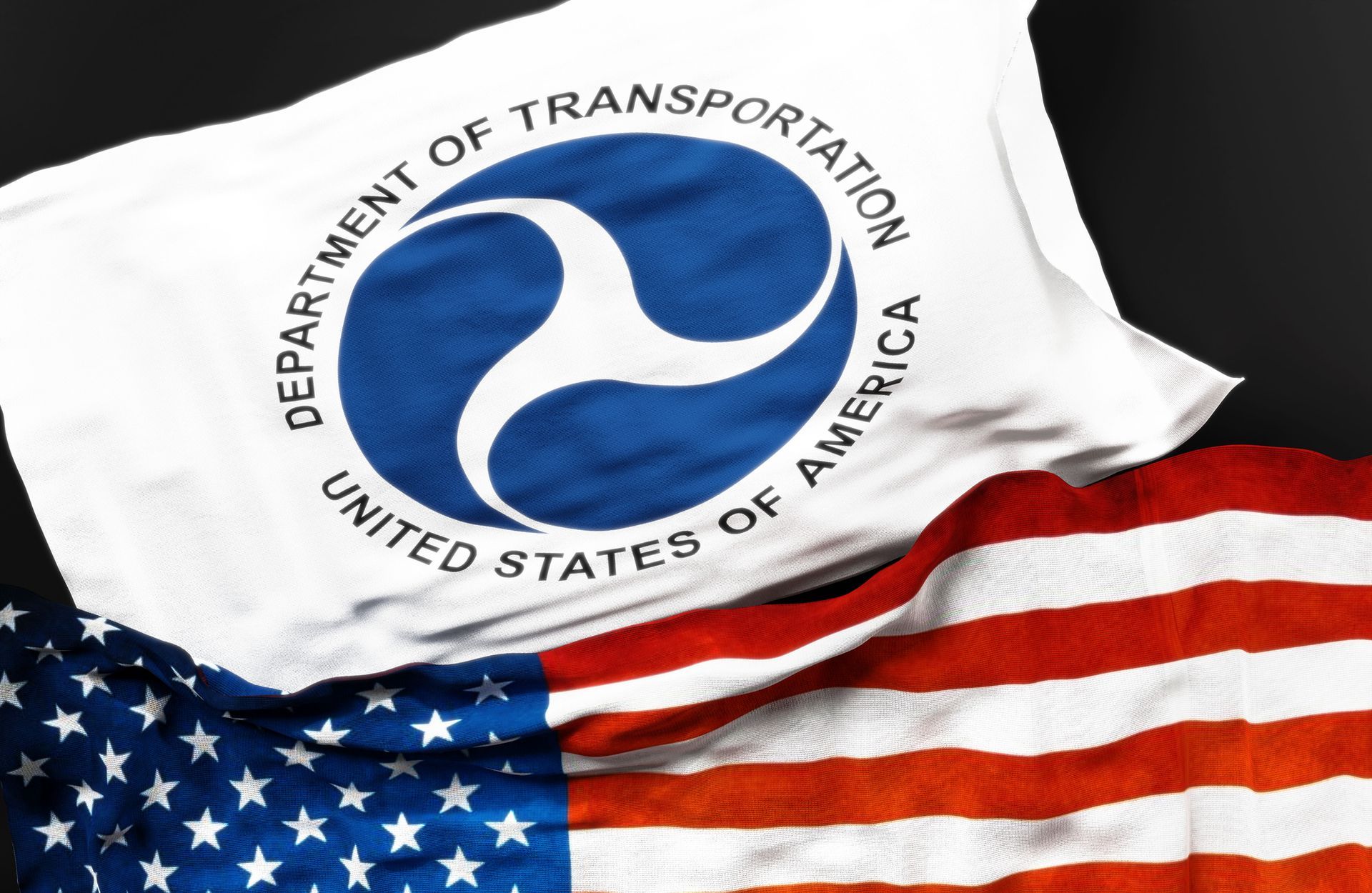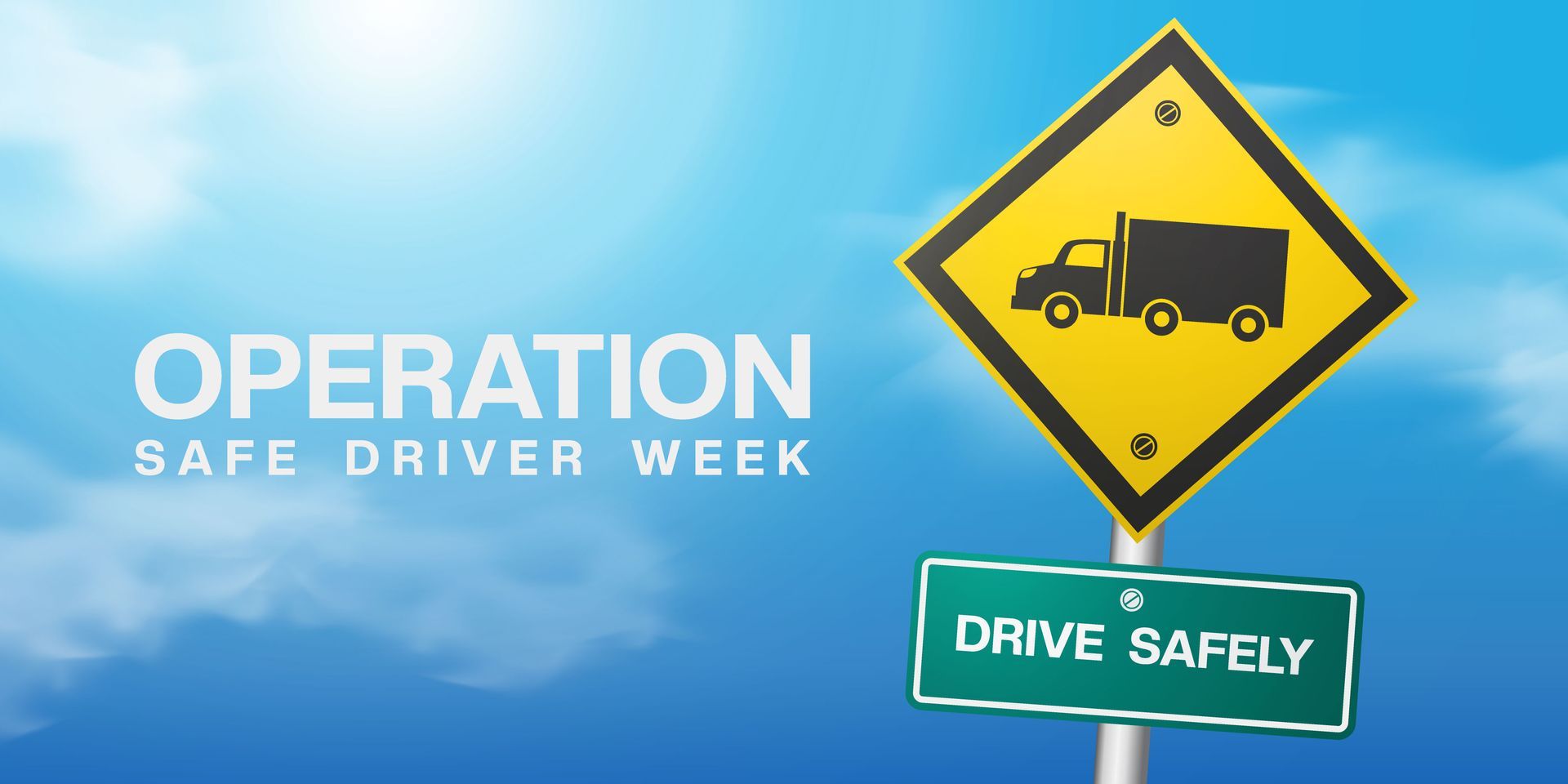How Trucking Fleets Can Escape the Insurance Squeeze

Yesterday, the United States Court of Appeals for the Sixth Circuit found broker liability claims for negligent selection of a motor carrier brought against Total Quality Logistics (“TQL”), a broker, are not preempted by the Federal Aviation Administration Authorization Act (“FAAAA”), 49 U.S.C. § 14501(c), due to the s

Worker’s case seeks to change federal standards so that union bosses must convince workers to ‘opt-in’ to supporting union politics Pittsburgh, PA (July 3, 2025) – Josh Hammaker, a driver for ABARTA Coca-Cola’s Houston, PA, distribution center, has filed federal charges against Teamsters Local 585 union officials at his workplace. Hammaker is charging Teamsters union officials with violating federal law by threatening to get him fired if he did not formally join the union, and with forcing him to pay for union expenditures – including union political activities. Hammaker filed his charges at the National Labor Relations Board (NLRB) with free legal aid from National Right to Work Legal Defense Foundation staff attorneys.

Adequate truck parking is critical to the success of the transportation industry. But, with an estimated national average of just 1 truck parking spot available for every 11 truck drivers, research on how to expand such parking options at public rest stops has recently become a top priority. Truck parking concerns have sparked attention at both state and federal levels, prompting the American Transportation Research Institute (ATRI) to release data in collaboration with the American Association of State Highway and Transportation Officials (AASHTO). The agencies’ joint research covers all 50 state Departments of Transportation, as well as Puerto Rico and Washington, D.C.

In response to a directive from the Trump administration, the U.S. Department of Transportation has issued a new enforcement policy aimed at ensuring commercial truck and bus drivers are able to read and speak English. The internal policy, issued May 20, 2025, is now in effect. It includes guidance for how roadside enforcement personnel should enforce the English language proficiency requirements in 49 CFR 391.11(b)(2).

Time to look alive, drivers! Operation Safe Driver Week will run from July 13-19 this year, with a focus on reckless, careless, and dangerous driving. Officers in Mexico, Canada, and the U.S. will be looking out for commercial drivers’ unsafe driving habits — don’t be one of the offenders! During last year’s initiative, officers in Canada and the U.S. pulled over 11,050 vehicles, issued 2,712 tickets and citations, and gave 3,228 warnings to both commercial and passenger vehicle drivers. Research shows that these interactions have had a positive impact on safe driver rates over time.

Promising to end the “plague of bad actors” in trucking, Transportatio n Secretary Se an P. Duffy signed an order officially rescinding previous FMCSA guidance on enforcing requirements for English proficiency for drivers. At the same time, he promised more action from the DOT in areas such as truck parking and non-domiciled CDLs. In an official signing at a trucking event in Austin, Texas, on May 20, Duffy said, “We’re going to replace it with stronger enforcement procedures.”

Everyone has been on pins and needles since President Trump introduced tariffs. The following article should belay your fears and prove that President Trump is on the side of the common worker especially the transportation industry. First, I want to point that the Dow Jones recorded on 1/20/2021 under the Biden Administration that the Dow was at $30,930.52. On 5/1/2025, the Dow recorded $41,074.66 under the Trump Administration. This was just a few days over his 100 days in office. No matter what you say, this is a 32% gain!

Originally published by Scopelitis, Garvin, Light, Hanson & Feary Yesterday, the Federal Motor Carrier Safety Administration (FMCSA) issued internal agency enforcement guidance (Guidance) to evaluate the English language proficiency (ELP) requirement for driver qualification under 49 C.F.R. 391.11(b)(2). The ELP Guidance was issued pursuant to Executive Order (EO) 14286, Enforcing Commonsense Rules of the Road for America’s Truck Drivers, signed by President Trump on April 28. As directed by the EO, the Guidance rescinds and replaces prior policy guidance that the FMCSA issued in 2016.

Eight electronic logging devices from Gorilla Fleet Safety LLC have been taken off the list of registered ELDs by the Federal Motor Carrier Safety Administration. These ELDs were placed on the FMCSA’s Revoked Devices list due to the company’s failure to meet the minimum requirements set forth in federal regulations.

By Kindall C James, Matthew C Lonergan of Bradley Arant Boult Cummings LLP Exactly a year ago, we wrote about the final rule issued by the Biden-era U.S. Department of Labor (DOL) regarding the test for determining whether a worker is an employee covered by the Fair Labor Standards Act (FLSA), or an independent contractor exempt from FLSA coverage. The final rule became effective on March 11, 2024 (the “2024 rule”) and replaced the DOL’s independent contractor test that was adopted in 2021 during the first Trump administration (the “2021 rule”), which made it made it easier to classify workers as independent contractors. We previously wrote about the 2021 rule back in January 2021. Recent developments suggest that, under new leadership, the DOL may abandon the short-lived 2024 rule and implement changes to its guidance on this issue in the near future.

NEWS RELEASE May 12, 2025 FOR IMMEDIATE RELEASE: Contact Wayne Schooling 800-805-0040 NorthAmerican Transportation Association Inc. Announces NEW Partnership Carson City, NV, May 2025 Just as Morgan & Morgan is America’s largest law firm, NorthAmerican Transportation Association (NTA) is pleased to announce that NTA has joined with Truckinfo.net to become the most comprehensive transportation association in the United States dedicated to serving the transportation industry. NTA now brings you the most expanded information on a myriad of subjects such as; The Top Trucking Insurance Companies of 2025. Now you can get truck quotes from multiple insurance carriers offers. This is an exciting milestone for us and we’re so grateful that thousands of you have trusted your business needs to us over the years. Established in 1989, we have continually grown over the years. NTA has become a trusted resource for private carriers, small to medium motor carriers, and Independent Contractors. NorthAmerican Transportation Association 680 East Nye Lane, Suite 201 Carson City, NV 89703 If you’re a NTA member, be sure to check our MEMBERS ONLY PORTAL for new and updated information. If you’re not a member, you don’t know what you’re missing and you may well be facing trouble in State and/or Federal compliance. For more information about NTA’s programs, you can visit our website at www.ntassoc.org or .com or call us at (562) 279-0557 if you are within California and at 800-805-0040 outside of California.

Originally published by Scopelitis, Garvin, Light, Hanson & Feary Yesterday afternoon, President Donald Trump signed an executive order (EO), “Enforcing Commonsense Rules of the Road for America’s Truck Drivers,” addressing the requirement for commercial truck drivers to demonstrate English proficiency under the Federal Motor Carriers Safety Regulations (FMCSRs). Under the EO, the Federal Motor Carrier Safety Administration (FMCSA) is directed to take action to ensure drivers who violate the proficiency requirement in 49 U.S.C. § 391.11(b)(2) will be placed out-of-service by roadside enforcement. The EO rescinds the 2016 guidance issued by the FMCSA, which had relaxed the enforcement of English proficiency standards. The 2016 guidance allowed drivers to use interpreters, cue cards, and phone apps to demonstrate English proficiency, and removed the out-of-service requirement for violations. The new EO will reinstate the requirement that enforcement personnel place drivers who do not meet the English proficiency standard out-of-service. The EO explains its goal is to enhance roadway safety by ensuring that all drivers can effectively read road signs, communicate with safety officials, and follow critical instructions.

With Permission from Miles L Kavaller, Atty California port drayage motor carriers in particular, the trucking industry, as well as businesses located in California using California workers, have been dramatically impacted by AB5, commonly known as the “ABC” test defining employee.¹ By and large a worker is an employee if that person provides services to a business and is engaged in the same business and is not otherwise eligible for the business-to-business exemption or is a Lyft or Uber driver.² This legislation following the California Supreme Court’s ruling in the Dynamex case, was intended to prohibit misclassification of workers as independent contractors. The Legislative findings supporting this legislation described a port drayage industry as guilty of “wage theft” particularly affecting low wage immigrants.

New York City has officially started its controversial congestion pricing plan , which trucking interests have vowed to keep fighting. As of January 5 in New York City, heavy-duty trucks must pay $21.60 each time they enter Manhattan south of 60th Street between 5 a.m. and 9 p.m. on weekdays and between 9 a.m. and 9 p.m. on weekends.

Compliment of Scopelitis, Garvin, Light, Hanson & Feary On January 20, Donald Trump returned to office as the 47th President of the United States accompanied by a Republican-controlled House and Senate, albeit with slim majorities (particularly in the House). Although the first Trump administration taught us to expect the unexpected, President Trump’s track record of lowering taxes and tackling regulatory burdens should signal initiatives that will ultimately benefit the transportation industry.

In the waning days of the first Trump administration, the U.S. Department of Labor (DOL) finalized a regulation establishing the test to be used by DOL to determine whether a worker is an independent contractor or employee under the Fair Labor Standards Act, which governs overtime and minimum wage. That regulation set forth a multi-factor test that emphasized two core factors that made the determination more predictable. The Biden administration replaced the DOL regulation with an equally weighted, multi-factor test but included commentary that leans toward a finding of employee status. President Trump’s Secretary of Labor nominee will take over at a time where the newer Biden administration rule is embroiled in legal challenges. The President may have multiple paths toward reinstituting a simpler, more predictable test favored by businesses. NorthAmerican Transportation Association will keep you abreast of any new changes,

The Commercial Vehicle Safety Alliance will hold its annual International Roadcheck commercial vehicle inspection blitz May 13-15, focusing on tires and truck driver hours of service . Roadcheck is a high-visibility, high-volume commercial motor vehicle inspection and regulatory compliance enforcement initiative that takes place over three days in Canada, Mexico and the United States.














